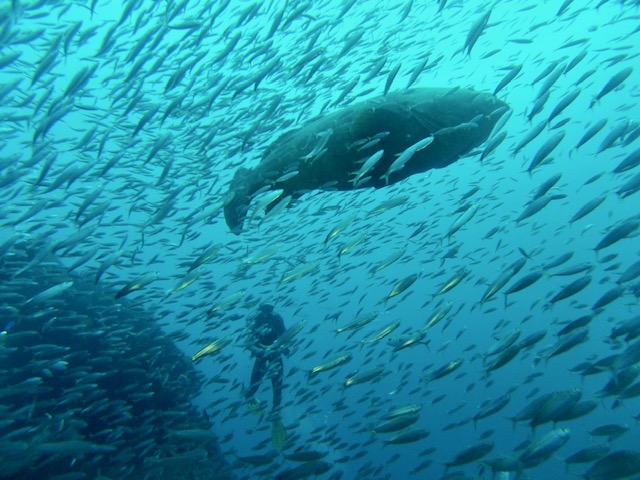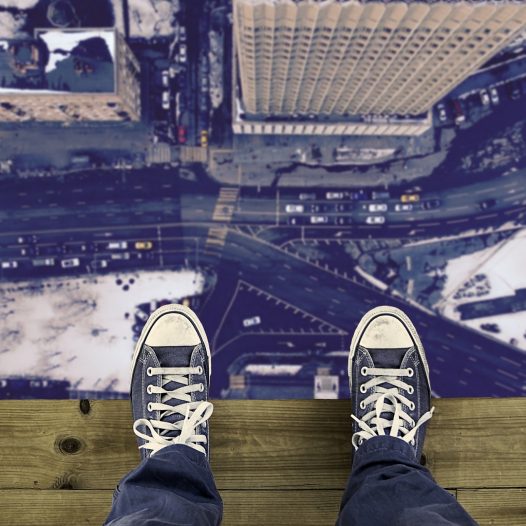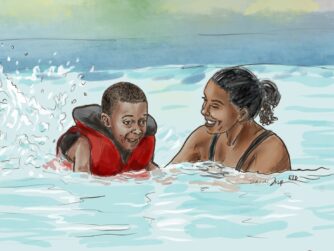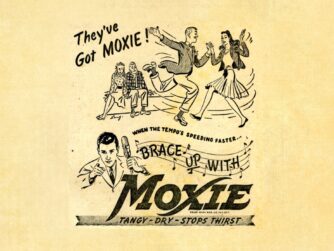Major General David Gillett, USAF (Retired) – E1D Executive Producer
Risk is something we all deal with in our lives. These days, it seems like risk is everywhere. COVID-19 has made even trivial encounters at the supermarket risky. We all have a different tolerance for risk depending on your life experience and your values. Most of us accept risk every day. When you get in your car, you accept the risk that you will be injured or killed. We do this without thinking about it and most of the time, it works out. But every now and then an unlikely event occurs. A couple years ago my neighbor’s wife was driving with her kids in the car when she was hit at high speed and killed, and kids severely injured. It was a tragedy. But none of us stopped driving. I have thought about risk at work and in my personal life. How do I balance risk and still live a full productive, and sometimes exciting life?
Over the years I have a two-pronged way of thinking about risk in my personal and professional life. First, I strive to understand the potential risk. By that I mean, for a given activity, what is the likelihood and consequences of acting. Secondly, I ask, “What factors influence risk?” and “Are the factors controllable?”
For example, driving my car presents risk. The likelihood that I get into an accident and will be injured is small, but real. The consequences are potentially catastrophic. I could be killed or severely injured. Someone else could be killed or injured. But I can control certain aspects of risk. I can wear a seatbelt. I can drive within the speed limit. I can even take driver training and reduce my chances of having that accident. I can also make sure I am alert and not distracted by my cell phone/text. I can do all these things and still something bad can happen. Like you, I decide that driving is necessary if I want to live life, go to work, take care of my family, AND have fun. My attitude is that I must accept some risk to live a full and rewarding life.
My personal risk tolerance is high. But when I decide to participate in a high-risk activity, I use the model I just described. I understand the risk thoroughly prepare myself and reduce the aspects of the risk I control, and then accept that I cannot control everything. This has led me to participate in sports such as snow skiing, sky diving, and scuba diving. I have only been hurt while snow skiing, but I recognize the potential is always there.

In scuba, there are multiple risk scenarios, but I have sought training that will help me if something should go wrong by teaching me how to deal with that possibility. I could have equipment failure, for example. So, I inspect my equipment before dives and have a pro do an annual inspection. I stay fit so I can be ready to fully participate in diving. I have the discipline to adhere to accepted safety practices and recognize that there are still hazards. But the reward is that I get to participate in a whole other world below the waves.
But how do I think about risk with respect to the pandemic? The short answer is, I followed my model.
First, I strove to understand the risk. I read about the 1918 pandemic, which in many respects is like what we are experiencing today. I read and listened to the science on the infection. So my conclusion is that the coronavirus is a rare but very dangerous disease. It spreads easily and is life changing, if not lethal. I am 67 so I am in the high-risk group.
The things I can control, I do. I wear a mask, social distance, avoid large crowds, and wash my hands frequently. Even though I do all those things, I might still get sick. I am physically fit so chances are, if I get sick, I will survive. But I still maintain a fulfilling life. I am a runner and run every day, with my dogs. I have gone scuba diving locally. My wife and I enjoy being together and working around the house.
I could avoid the risk altogether, but there are problems with being too risk averse. A sedentary life would expose me to heart disease and obesity. I cannot escape risk in one form or another, so I might as well enjoy life while I can because, every day is literally a gift and I am not willing to waste a moment.








